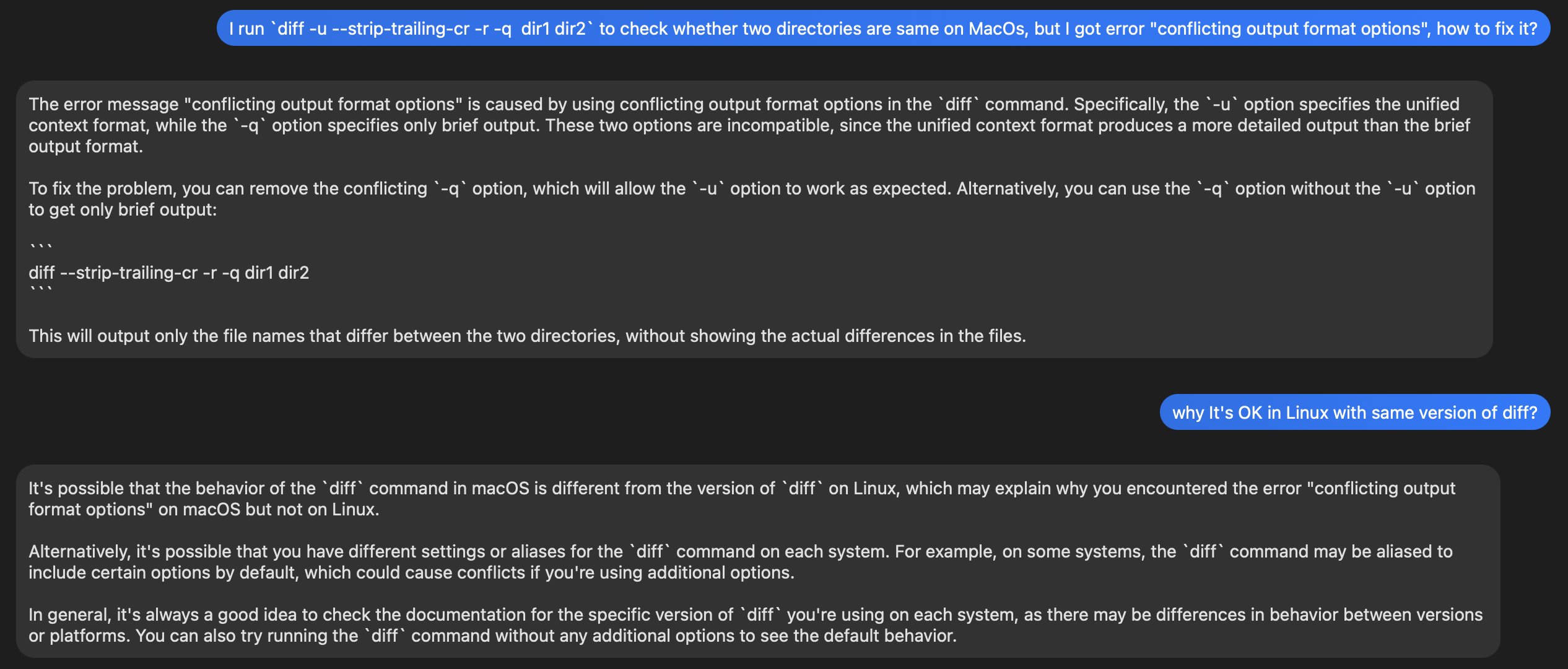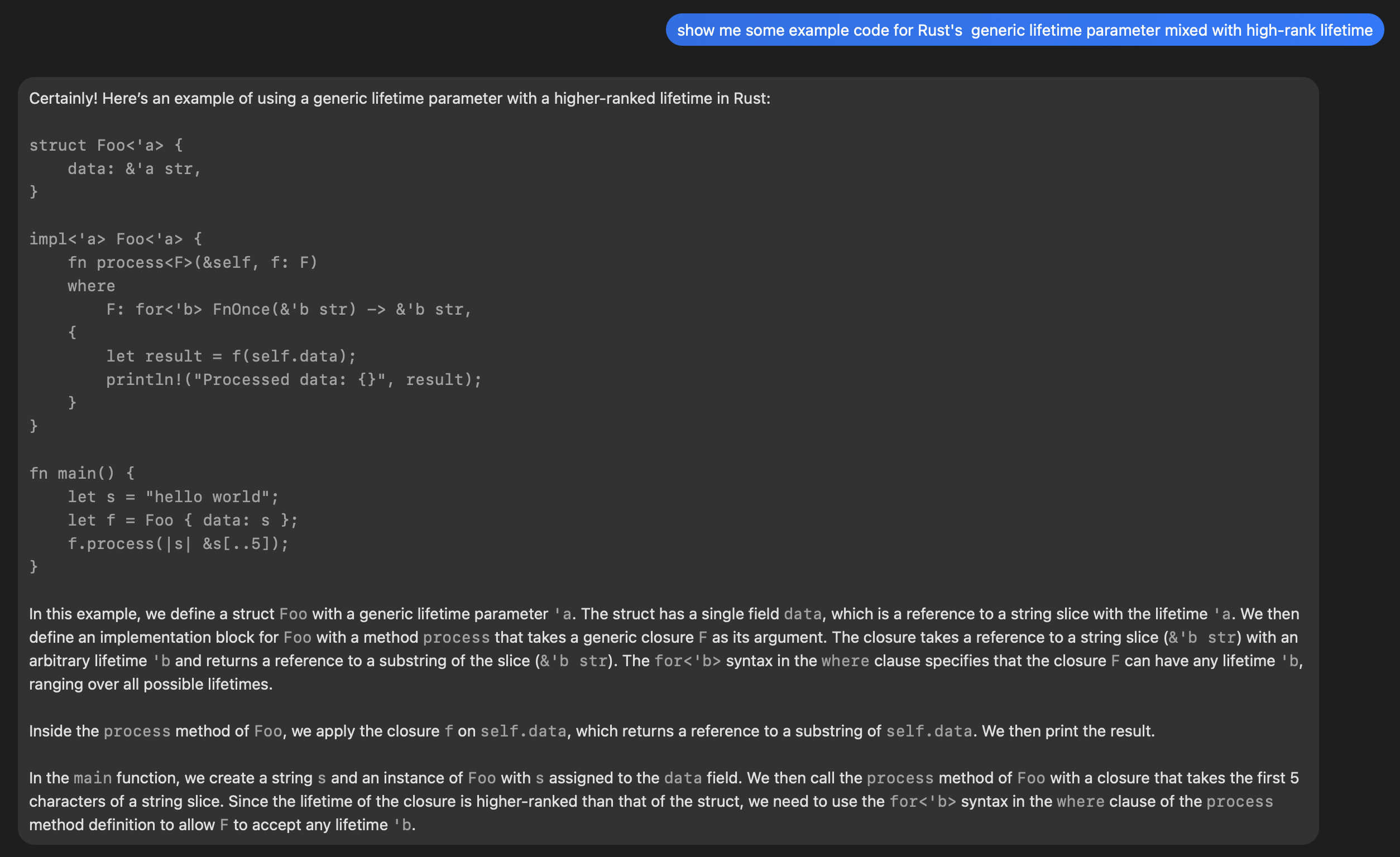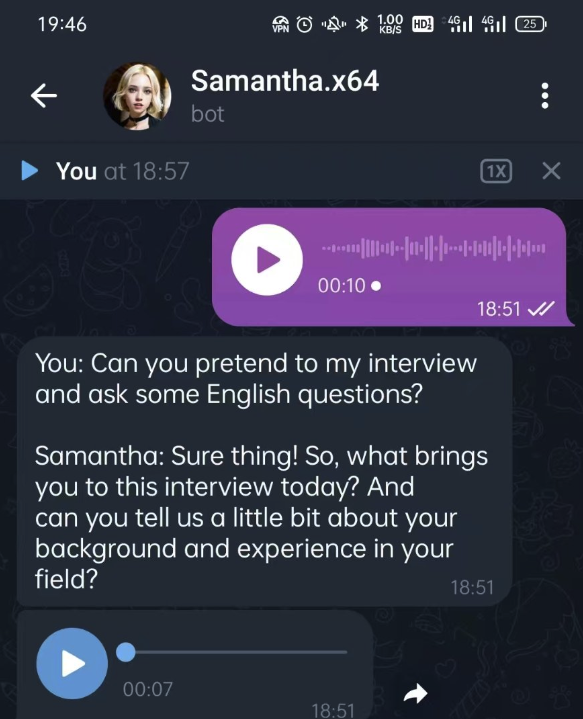Original link: http://catcoding.me/p/chatgpt-tools/
Jobs once said: Computers are like bicycles, they are the bicycles of the human mind . Computers, like bicycles, can help people complete many tasks quickly and efficiently, and are a kind of human thinking tool.
With the emergence of chatGPT, the computer tool has completely evolved. It understands more than humans, can communicate with people through language, understands reasoning and induction, and helps you learn and create. Computers can also become “friends of human thinking.”
The disruption of LLM technology is mixed with excitement and fear, and many industries face huge changes.
It’s clear that Google is in danger. According to my recent experience, the number of times I use Google search will be less and less. I will only use Google when I want to find some web pages. For the search and learning of a detail or topic, I will first Try chatGPT.
Taking an example I encountered recently, I encountered a unit test case that failed to run. From the error message, it was “conflicting output format options”. When I described this scenario, chatGPT gave a very good Reply, and we can learn more by continuing to ask:

Of course, I can also search by keyword through Google, but I know that this will be more troublesome. I need to find valuable things from a pile of sand, and I can’t talk to the search engine.
Using chatGPT is very suitable for Socratic dialogue and exploratory learning. For example, I want to understand a topic: 
Then I continued to ask:
- what is bound lifetime in Rust
- show me some example code for Rust’s generic lifetime parameter
- show me some example code for Rust’s higher-ranked lifetime
- show me some example code for Rust’s higher-ranked lifetime in a trait
- show me some example code for Rust’s generic lifetime parameter in a struct
- show me some example code for Rust’s generic lifetime parameter mixed with high-rank lifetime
- In Rust, can ConstGeneric work with lifetime parameter?

The answers given by chatGPT are very good, which allows me to continue to explore the topics I want to close. Of course, GPT-4 is even more terrifying. A friend of mine is taking an economics course recently, and the weekly quiz is basically killed by GPT.
I recently wrote a small Python program chenyukang/talkGPT with dozens of lines, which can basically run smoothly through the interface of SpeechRecognition and OpenAI for spoken English. Later, I discovered this kind of product Telegram made by other companies: Contact @samantha_x64_bot , and I have been able to practice oral English with the black widow very fluently:

Therefore, chatGPT is a tool of another dimension, which has accumulated a lot of words and knowledge in human history, and can continue to evolve. If it has some core human abilities, such as logic, reasoning, and induction, chatGPT is a person who has lived for hundreds of years and continues to evolve and renew itself over time. When chatGPT technology is combined with Boston Dynamics’ robots, this old man who has lived for hundreds of years has a body.
Isn’t this scary?
When we do create such tools, how can we change the way we learn and work? In the future, everyone can communicate with these various GPTs through mobile devices, and the machine-generated components in almost all creations will become larger and larger.
This is the beginning of great changes, and many questions now have no clear answers:
What should students learn in school? Maybe all the memorized things are less important. What students should learn is more general education, how to learn independently and innovate.
Is there an essential difference between programming and writing Prompt? I used to think there was a difference, but if you think of chatGPT as a compiler or an interpreter, it doesn’t really make much difference. It’s just that the programming is more detailed, you can control every instruction, this is the original way of talking directly to the computer. Prompt is almost a natural language, and you can complete tasks in specific fields through specific prompts. The demand for Prompt Engineers will indeed exist. The programming language we use today may be an assembly language in the future.
Are works created and assisted by chatGPT copyrightable? I don’t know, it seems that the law hasn’t caught up with this. In the future, there will inevitably be a large number of machine-produced content, and pure hand-crafted content will become scarce, but how to distinguish whether it is purely hand-crafted or not will become unimportant. In fact, some chatGPT generated for me in this article  .
.
Books will become less important? People will be more impatient to read books from beginning to end. Maybe we can distribute knowledge by publishing ideas and knowledge bases. For example, Liu Run has compiled all his books and articles into a subject knowledge base. Conversation, like someone put together Paul Graham GPT .
How do we face such new tools? The most important thing is to position it as a tool to improve efficiency and create value, as John Carmack said:
Software is just a tool to help accomplish something for people – many programmers never understand that. Keep your eyes on the delivered value, and don’t over focus on the specifics of the tools.
This article is transferred from: http://catcoding.me/p/chatgpt-tools/
This site is only for collection, and the copyright belongs to the original author.